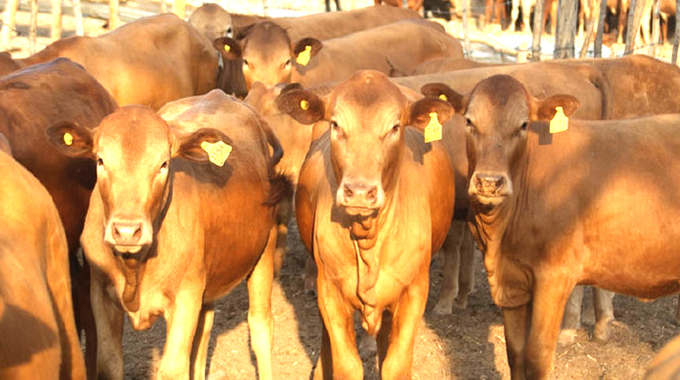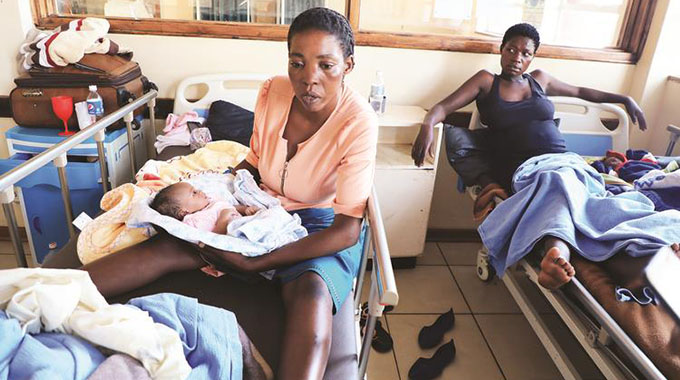Nearly 1 200 cattle succumb to drought

Elita Chikwati Senior Agriculture Reporter
NEARLY1 200 cattle and 35 donkeys have succumbed to drought that has seen pastures dwindle and water sources dry up. Farmers now need to cut herds by selling unproductive cattle and use the proceeds to buy stockfeed for the remaining livestock. Statistics from the Department of Veterinary Services (DVS) show that the southern parts of the country are the worst affected.
As at October 17, the drought had claimed 1 167 cattle and 35 donkeys in four provinces.
“A total of 240 cattle deaths were reported in Midlands Province; Matabeleland South recorded 291 deaths; Matabeleland North 218 deaths; while Masvingo Province reported 418 cattle and 35 donkeys deaths.
“Inadequate grazing led to illegal movements and straying of animals in search of grazing and watering and this resulted in the mixing of susceptible animals with infected animals, thereby spreading FMD (foot-and-mouth disease) to new areas,” reads the report.
It is feared that the number of cattle deaths could be higher as there was gross under reporting.
DVS Director Dr Josphat Nyika urged farmers to consider de-stocking.
“Farmers are encouraged to de-stock. For instance, sell older animals and save younger and productive ones,” he said.
Zimbabwe Farmers Union (ZFU) president Mr Abdul Nyathi said large numbers of cattle were succumbing to drought and the situation had been worsened by the drying up of dams.
“Cattle are now dying due to lack of water and pastures. The dams are drying up where there is little baled grass. The hay bales are being sold at between $80 and $100 per 15kg bale, which is beyond the reach of many.
“The most affected areas are Masvingo, Matabeleland South, Matabeleland North, south of Midlands, Muzarabani and south of Manicaland.
“Farmers should de-stock. They need to select unproductive cattle and sell so that they get money to buy supplementary feeding. Although the quality of meat has gone down, it is better to sell at a lower price than to lose the whole herd to drought,” he said.
Zimbabwe Commercial Farmers Union (ZCFU) director Mr Jeremiah Tevera urged farmers to provide supplementary feeding, hay bales and salt licks.
He advised them to sell part of their stock and remain with a manageable number of livestock.
“In our traditional culture, we value livestock so much that we end up losing them because we do not want to sell. We want to save the best of the stock using the minimum resources available so we have to sacrifice and remove unproductive animals and create more pastures for the remaining stock.
“We need a lot of water for livestock and we should get rid of unnecessary stock to reduce pressure on resources.”











Comments